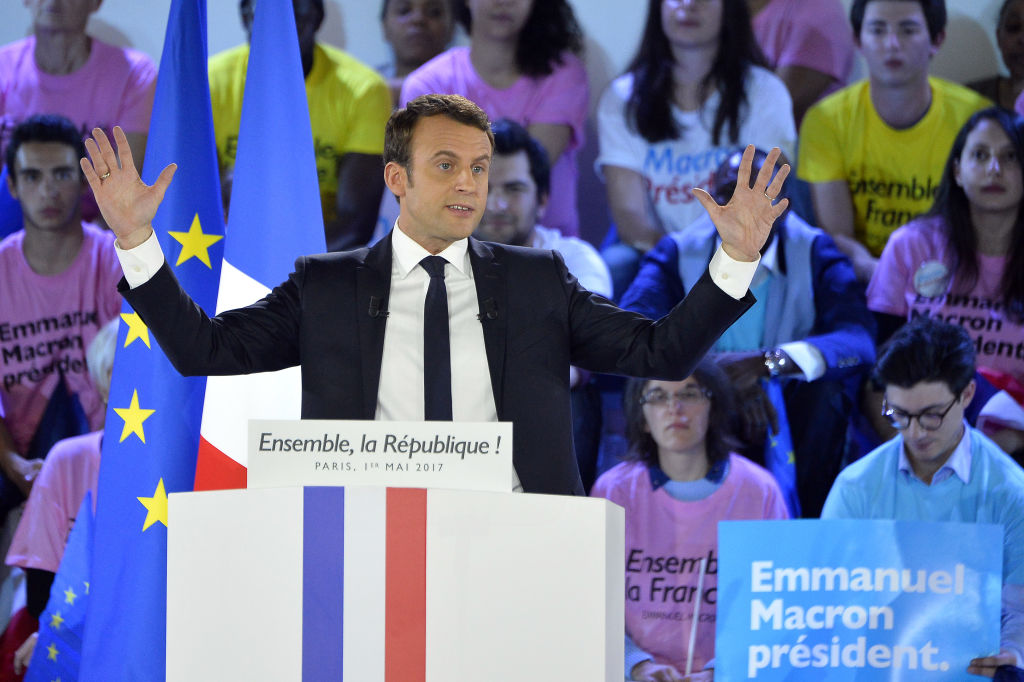
A familiar scenario is playing out days before France holds its presidential election. On the eve of Sunday’s runoff vote against the far right-leaning Marine Le pen, French center-left candidate Emmanuel Macron has been hit with a “massive and coordinated” data dump. The leak contains containing what the campaign claims is a mixture of both legitimate and fraudulent information. The timing, along with the forging of documents and emails, aims to influence the outcome of France’s election according to Macron’s supporters. It’s also deja vu for those still reeling from America’s election back in November.
The 6GB data dump reportedly contains a treasure-trove of information, including campaign emails, documents, and accounting records about Macron and his associates. The release coincides with a traditional two-day gag order placed on candidates, meant to give voters time to reflect on their choice without outside influence. Now, just the rumor of a rainy storm on the horizon is doing more than clouding that time set aside to make a decision.
What’s interesting to some, in this case, is that the Macron campaign is saying right off the bat that the data dump includes “numerous false documents intended to sow doubt and disinformation.” In the weeks following the Podesta emails dump, Clinton staffers took the route of not addressing many of the materials news outlets questioned them on, citing the inability to confirm the information was legitimate. To this day no one is sure what documents released by Wikileaks are authentic.
From the star, the hack drew comparisons to the alleged Russian data dump of Clinton campaign chairman John Podesta’s emails months prior to the United States own presidential election. Just minutes prior to the law prohibiting candidates from making public comments, Mr. Macron’s campaign said in a statement on Friday that they too find the hacking and subsequent data dump quite familiar according to the New York Times:
“Intervening in the final hour of the official campaign, this operation is clearly a matter of democratic destabilization, as was seen in the United States during the last presidential campaign,” “We cannot tolerate that the vital interests of democracy are thus endangered.”
While immediate comparisons have been made between the Clinton campaign hacks and those in France, no information has come to point at the Kremlin in this case at this point. Finding out who is responsible for the hack and its contents won’t be known until after the election is complete. French law prohibits the publishing of any information, not only of this variety but any sort, this close to the election. Anyone who breaks this rule, in this case, could face charges.
Far-right activists and hackers have taken a liking to Le Pen, who is compared to Donald Trump and thought to have global views that align with those of Russian president Vladimir Putin. In the last few weeks, pro-Le Pen Twitter bots have popped up, just as pro-Trump ones did during the United States election, spouting far-right propaganda and support of Le Pen’s run at office.
Even as French law prohibits the leaking of the Macron data dump documents, the hashtag #MacronLeaks has been trending worldwide in an attempt to spread knowledge of the existence of the information in an attempt to plant the seed of doubt via the mystery of what is included in the actual data. The hope of the far-right social media presence is that voters that are on the fence still will decide to stay home, rather than vote for Macron.
(Via New York Times and Wired)
